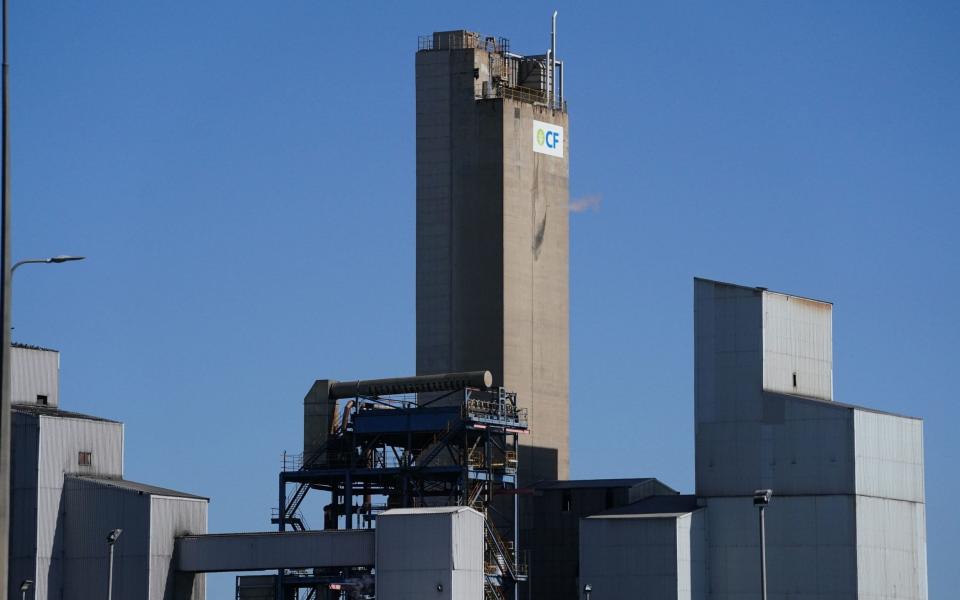Europe next to suffer from CO2 shortage, industry chiefs warn

Carbon dioxide shortages could spread across Europe, business leaders have warned, striking a new blow to the Continent’s economic recovery from the pandemic.
Soaring natural gas prices have forced fertiliser companies to curb output, denting production of carbon dioxide as a by-product.
Nippon Gases, one of the world’s largest carbon dioxide distributors, told the Financial Times it estimated its supplies had fallen by 50pc in Europe, and countries would “suffer shortages”.
It comes as British food producers were warned yesterday to prepare for a 400pc rise in carbon dioxide prices.
“We need the market to adjust, the food industry knows there’s going to be a sharp rise in the cost of carbon dioxide,” George Eustice, the Environment Secretary, told Sky News.
The price of CO2 would rise from around £200 a tonne to around £1,000 a tonne, Mr Eustice said.
Carbon dioxide is used to stun and kill animals such as chickens as well as to cool critical nuclear reactors and to keep medicines cold.
The UK Government has stepped in to avert shortages by paying a fertiliser company so it can restart production at two sites.
US-listed CF Industries had closed the two plants, in Billingham and Ince, last week in the face of rising gas costs. The pair are responsible for around 60pc of Britain’s carbon dioxide.
Mr Eustice added the three-weeks of support for CF Industries would cost “many millions, possibly tens of millions”.
He added: “We know that if we did not act, then by this weekend or certainly by the early part of next week, some of the poultry processing plants would need to close.”
But the boss of supermarket Iceland said the temporary arrangement would not solve the food industry’s problems.
“A three week deal won’t save Christmas,” said managing director Richard Walker. “And certainly won’t resolve the issue in the long term.”
Norwegian fertiliser producer Yara last week curtailed about 40pc of its ammonia fertiliser production capacity in Europe in response to the soaring natural gas prices.
Yara’s chief executive, Svein Tore Holsether, told the FT that natural gas was costing about $900 per tonne of ammonia it made, leading to deep losses.
“Ammonia production with today’s natural gas prices and today’s spot prices for ammonia is simply not profitable in Europe,” he said.
CO2 supplies are being prioritised for key industries such as nuclear power, medical uses and meat production. Although Billingham is expected to restart production immediately, it is likely to take a few days for CO2 to be produced.

 Yahoo Finance
Yahoo Finance 